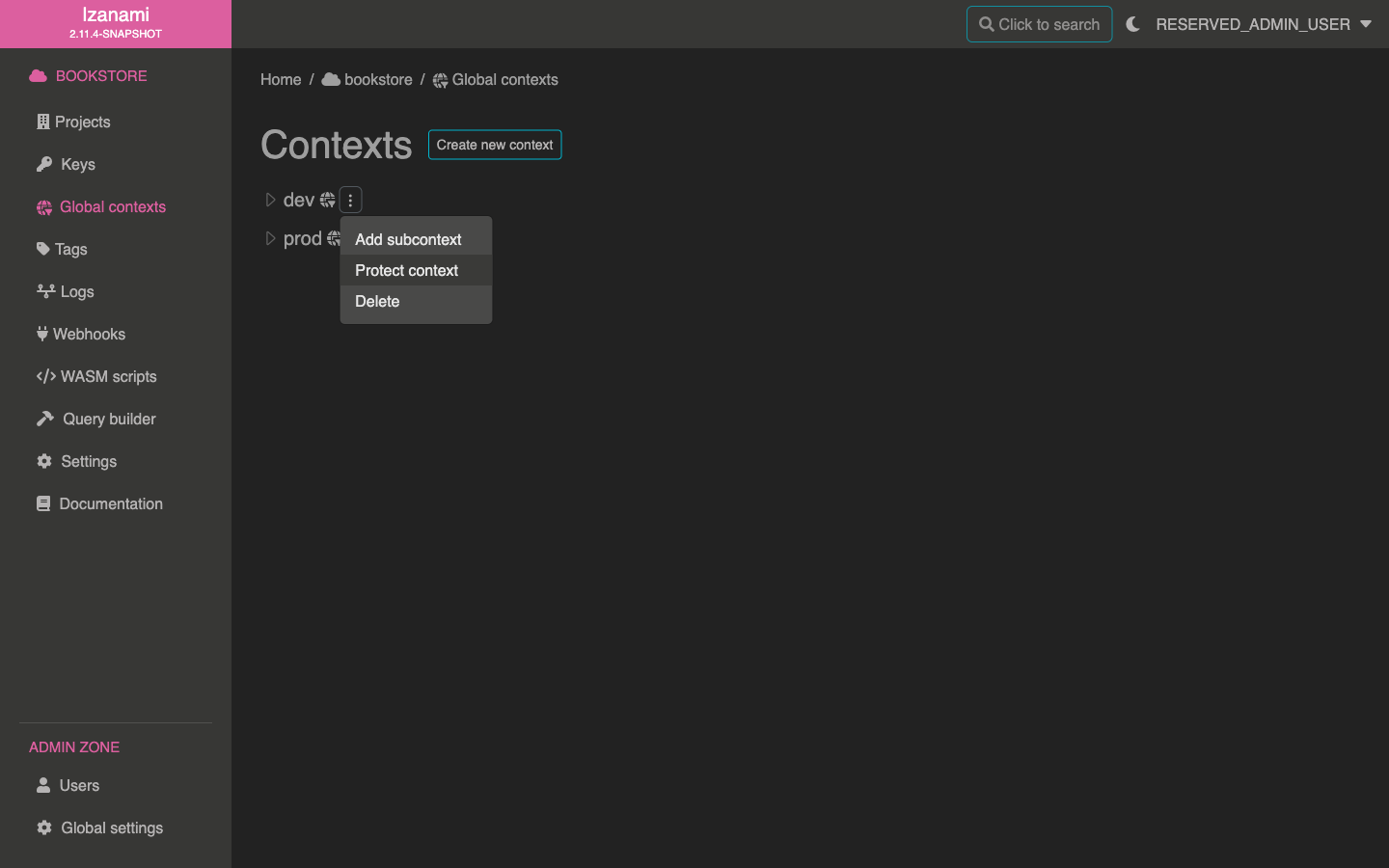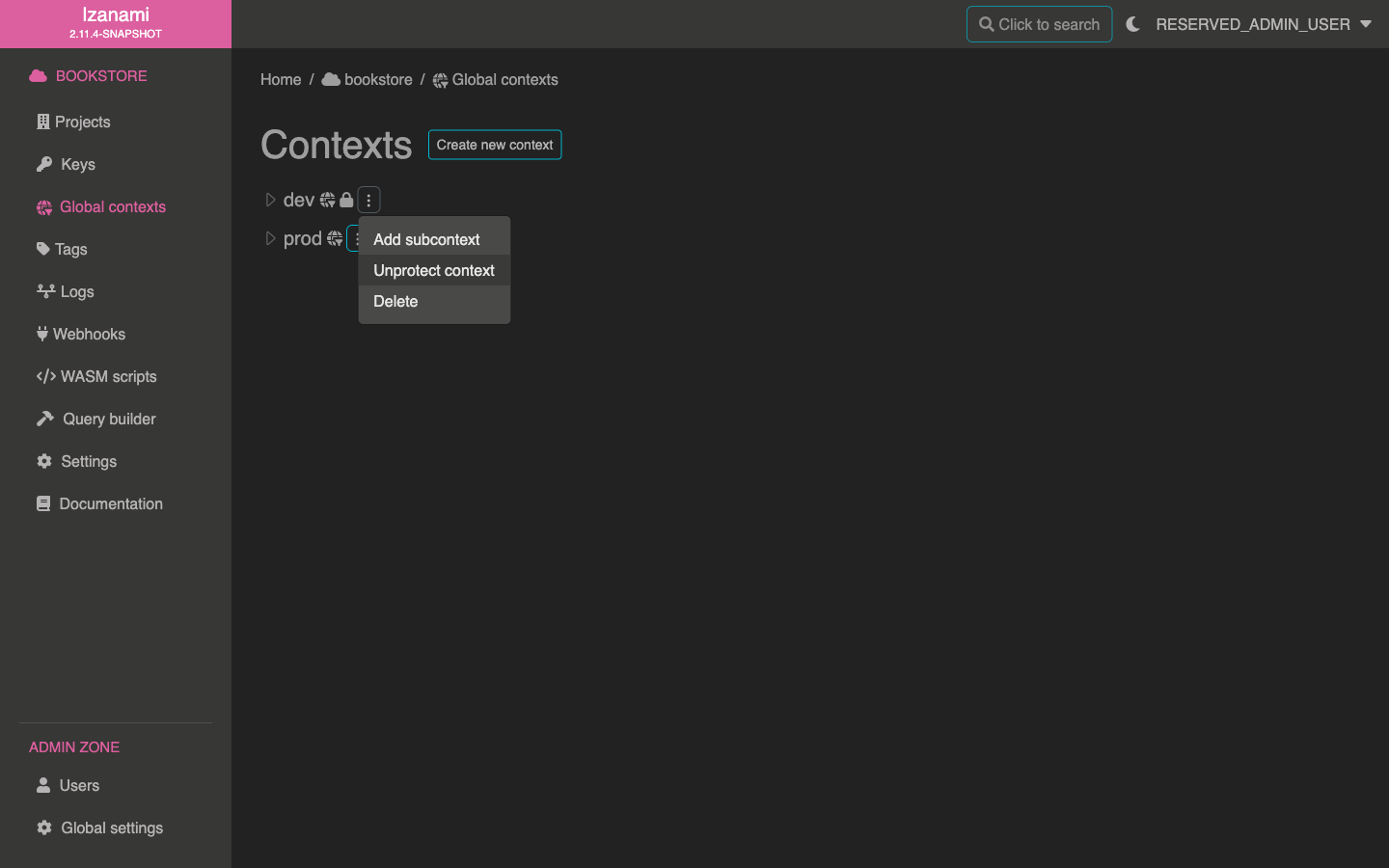Protected contexts
Contexts allow to define a different behavior / value for your flags. It can be usefull to handle environments. To learn more about contexts, read the context guide.
It is sometimes usefull to "protect" contexts to avoid accidental modifications, for instance to avoir updating a flag activation in production by mistake.
For such cases, Izanami allows to "protect" a context.

Rights on protected contexts
Operation on protected contexts are restricted to users with admin rights on either project or tenant, depending if context is local or global.
Protected contexts and associated overloads remain visible to any user with read right on project / tenant.
Global contexts
Below array details right change regarding global protected contexts.
| User with admin rights on tenant | User with write rights on tenant | User without write right on tenant | |
|---|---|---|---|
| Read overloads of protected or unprotected context | ✅ | ✅ | ✅ |
| Create / delete / update overloads on unprotected contexts | ✅ | ✅ | ❌ |
| Delete unprotected context | ✅ | ✅ | ❌ |
| Protect / unprotect context | ✅ | ❌ | ❌ |
| Create / delete / update overloads on protected contexts | ✅ | ❌ | ❌ |
| Delete protected context | ✅ | ❌ | ❌ |
Local contexts
Below array details right change regarding project local protected contexts.
| User with admin rights on project | User with write rights on project | User without write right on project | |
|---|---|---|---|
| Read overloads of protected or unprotected context | ✅ | ✅ | ✅ |
| Create / delete / update overloads on unprotected contexts | ✅ | ✅ | ❌ |
| Delete unprotected context | ✅ | ✅ | ❌ |
| Protect / unprotect context | ✅ | ❌ | ❌ |
| Create / delete / update overloads on protected contexts | ✅ | ❌ | ❌ |
| Delete protected context | ✅ | ❌ | ❌ |
Protecting a context
To protect a context, you'll have to go to context page, either global context page (for global contexts) or project context page (for local contexts).
Then click on the "3 dots" icons and choose "protect context" option.

Once you've confirmed, context is protected.
⚠️⚠️⚠️ When protecting a context all subcontexts automatically get protected as well. ⚠️⚠️⚠️
Unprotecting a context
As for protecting context, you'll have to go to context page (project context page for local context, tenant context page for global context).
Then click on the "3 dots" icons and choose "unprotect context" option.

Once you've confirmed, context is unprotected.
⚠️⚠️⚠️ Unlike context protection, unprotecting context DOES NOT unprotect subcontexts. ⚠️⚠️⚠️